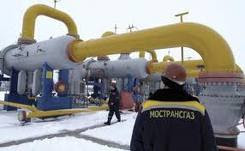Thomas L FRIEDMAN The NEW york Times
I’VE never been more worried about Israel’s future. The crumbling of key pillars of Israel’s security — the peace with Egypt, the stability of Syria and the friendship of Turkey and Jordan — coupled with the most diplomatically inept and strategically incompetent government in Israel’s history have put Israel in a very dangerous situation.
This has also left the U.S. government fed up with Israel’s leadership but a hostage to its ineptitude, because the powerful pro-Israel lobby in an election season can force the administration to defend Israel at the U.N., even when it knows Israel is pursuing policies not in its own interest or America’s.
Israel is not responsible for the toppling of President Hosni Mubarak of Egypt or for the uprising in Syria or for Turkey’s decision to seek regional leadership by cynically trashing Israel or for the fracturing of the Palestinian national movement between the West Bank and Gaza. What Israel’s prime minister, Bibi Netanyahu, is responsible for is failing to put forth a strategy to respond to all of these in a way that protects Israel’s long-term interests.





















